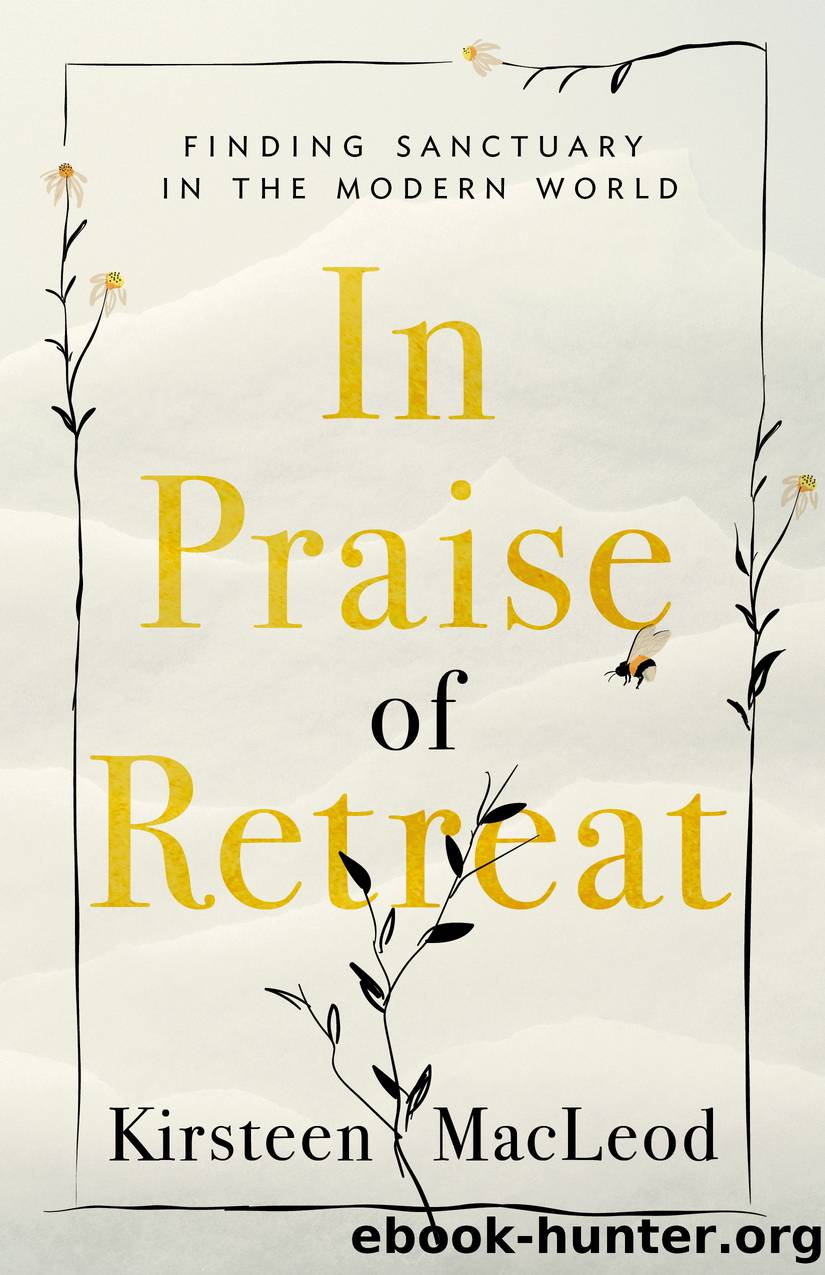In Praise of Retreat by Kirsteen MacLeod

Author:Kirsteen MacLeod
Language: eng
Format: epub
Publisher: ECW Press
Published: 2020-03-30T00:00:00+00:00
For millennia humans have venerated holy places in nature: springs, wells, waterfalls, rivers, forests, valleys, caves, mountains and monolithic rocks. Of sacred geographies the Dalai Lama writes, âTaken together they represent the common need in the human quest for happiness to preserve certain places as sanctuaries, reflecting perhaps each individualâs wish for inner peace.â And while humans have long been drawn back to wild edgelands for perspective, Thoreau added a modern-day geography of retreat to our repertoire: a wasteland on the outskirts of commerce.
âWaldenâs general lack of utility made it an âoutbackâ with an ascetic remoteness that would attract the Transcendentalists, beginning in the 1830s,â writes Robert M. Thorson in The Guide to Walden Pond. With amazing prescience Thoreau saw the false distinction between âwildâ landâuninhabited land and exalted, sweeping landscapesâand ânon-wildâ land, a way of thinking that has disconnected us from reality, and the natural world. âFar from being the one place on Earth that stands apart from humanity, wilderness is quite profoundly a human creation,â Cronon notes in his 1995 essay âThe Trouble with Wilderness.â Without us to set it apart, of course, there is no wilderness. He elaborates, âWilderness is not a pristine sanctuary where the last remnant of an untouched, endangered, but still transcendent nature can for at least a little while longer be encountered without the contaminating taint of civilization.â Nor is it, I might add, a consumerist âwilderness experience,â with its high peaks and endangered animals.
Thoreauâs ecological view, that humans are part of nature, meant he rejected the biblical ideaâstill prevalent today in Western civilizationâthat humans have dominion over the natural world, which he saw as a kind of hatred for life. In Genesis, humans are told, âAnd the fear of you and the dread of you shall be upon every beast of the earth, and upon every fowl of the air, upon all that moveth upon the earth, and upon all the fishes of the sea; into your hand are they delivered . . . even as the green herb have I given you all things.â Thoreauâs step back to the woods, where he noticed the small and particular in nature, was a refusal of this idea, coinciding with rampant industrialization and violent attacks on Indigenous people to force them off their lands. Battles between the army and Sitting Bull, Crazy Horse and Geronimo were daily news in Thoreauâs time: he recognized also that lands are contested spaces.
Walden was a new kind of margin for the age, outside the urban and industrial. Before Thoreau came to Walden, when a new road had been built, it bypassed the area. An impoverished village grew up there, where formerly enslaved people, immigrants and day labourers squatted, and no one stopped them because the land was rocky and the soil was poor. Thoreau describes resident Zilpha White, once enslaved, who built a one-room house and lived as a hermit, spinning cloth, for more than 40 years. âShe led a hard life, and somewhat inhumane,â he writes. White
Download
This site does not store any files on its server. We only index and link to content provided by other sites. Please contact the content providers to delete copyright contents if any and email us, we'll remove relevant links or contents immediately.
What Is the Gospel? (Foreword by D. A. Carson) by Greg Gilbert(989)
Jesus in Me by Anne Graham Lotz(938)
Daily Strength: Devotions for Bible Believing Study by Douglas Stauffer & Andrew Ray & Rick Quatro(896)
Christian Ethics by Wilkens Steve;(854)
The Practice Is the Path by Tias Little(816)
New Morning Mercies by Tripp Paul David(806)
Cleaning Up Your Mental Mess by Dr. Caroline Leaf(738)
Veritas: A Harvard Professor, a Con Man and the Gospel of Jesus's Wife by Ariel Sabar(721)
Greatest Mystery in the World by Og Mandino(661)
The Creative Call by Janice Elsheimer(596)
No More Christian Nice Guy by Paul Coughlin(581)
Our Appointment with Life by Thich Nhat Hanh(571)
Monastic Archaeology by Unknown(564)
2084 by John C. Lennox(556)
This One Wild and Precious Life by Sarah Wilson(542)
Jesus--Awesome Power, Awesome Love (Discover 4 Yourself® Inductive Bible Studies for Kids) by Kay Arthur(530)
The Duties of Parents by J.C. Ryle(514)
The Catholic Verses: 95 Bible Passages That Confound Protestants by Dave Armstrong(510)
The Tale of the Tardy Oxcart (Swindoll Leadership Library) by Swindoll Charles R(492)
